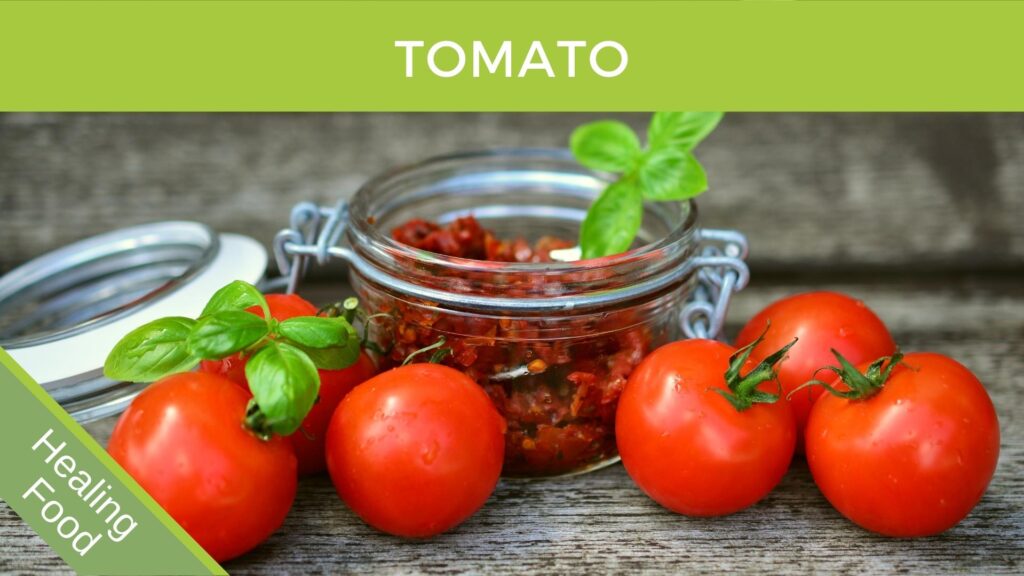- 9 months ago
- 3Minutes
- 948Words
- 304Views
Tomato sauce is one of the most popular additions to food in New Zealand. Tomato is also commonly used as a base for Indian, Italian dishes and transforms many soups and sauces. Tomato juice makes a nice alternative to alcoholic beverages or soft drinks.
Lycopene is a carotene and phytochemical known to protect against metabolic diseases. It is found in red fruits and vegetables, predominantly tomatoes.
The humble tomato could be another secret weapon to combating metabolic disease.
Some recent scientific studies help explain why.
(1) Lycopene and Risk of Prostate Cancer. A Systematic Review and Meta-Analysis. PUBMED https://www.ncbi.nlm.nih.gov/pmc/articles/PMC4616444/
(2) Tomato juice supplementation in young women reduces inflammatory adipokine levels independently of body fat reduction. PUBMED https://www.ncbi.nlm.nih.gov/pubmed/25837214
(3) Lycopene – antioxidant with radioprotective and anticancer properties. A review. PUBMED https://www.ncbi.nlm.nih.gov/pubmed/25526570
(4) Tomato juice consumption improves blood antioxidative biomarkers in overweight and obese females. PUBMED https://www.ncbi.nlm.nih.gov/pubmed/25466953
(5) Tomatoes and risk of digestive-tract cancers. PUBMED https://www.ncbi.nlm.nih.gov/pubmed/7927916
(6) [Influence of cooking procedure on the bioavailability of lycopene in tomatoes]. PUBMED https://www.ncbi.nlm.nih.gov/pubmed/23478703
(7) Lycopene and Vascular Health. PUBMED https://www.ncbi.nlm.nih.gov/pmc/articles/PMC5974099/
(8) Effect of 12-Week Daily Intake of the High-Lycopene Tomato (Solanum Lycopersicum), a Variety Named “PR-7”, on Lipid Metabolism: A Randomized, Double-Blind, Placebo-Controlled, Parallel-Group Study. PUBMED https://www.ncbi.nlm.nih.gov/pmc/articles/PMC6566250/
(9) Lycopene and cognitive function. PUBMED https://www.ncbi.nlm.nih.gov/pmc/articles/PMC6558668/
Health Benefits
Bowel Cancer
The beneficial effect of raw tomatoes in the population tested may be partly due to the fact that they constitute perhaps the most specific feature of the Mediterranean diet. After allowance for age, sex, education, smoking and drinking level, and total caloric intake, there was a consistent pattern of protection for gastrointestinal cancers. (5)
Blood Lipid and Cholesterol
A diet high in tomatoes has been shown to help control LDL cholesterol. In one 12-week randomized, double-blind, placebo-controlled, parallel-group comparative study, the intake of high-lycopene semidried tomato, reduced LDL-C and was confirmed to be safe at a dosage of 200 g/day (as raw tomato). Tomato is an important component of the diet worldwide, and our findings support the health benefits, especially with respect to lipid metabolism, of consuming tomatoes rich in lycopene. (8)
Cardiovascular
Lycopene may improve vascular function and contributes to the primary and secondary prevention of cardiovascular disorders. The main activity profile of lycopene includes antiatherosclerotic, antioxidant, anti-inflammatory, antihypertensive, antiplatelet, anti-apoptotic, and protective endothelial effects, the ability to improve the metabolic profile and reduce arterial stiffness. (7)
Cognitive Decline (Dementia)
In one study plasma lycopene was analysed among 173 participants, and associations were examined between baseline blood levels of these circulating nutrients and development of dementia across 11 years. Dementia diagnosis was based on International Statistical Classification of Diseases and Related Health Problems (ICD)-10 criteria. (9)
Prostate Cancer
Data demonstrates that higher lycopene consumption/circulating concentration is associated with a lower risk of prostate cancer. Analysis indicates a significant linear dose/response association between lycopene intake and prostate cancer risk. (1)
Radiation Damage
Numerous in vitro and animal studies showed that Lycopene may provide protection against damages induced by ionizing radiation. It suggests that supplementation of Lycopene might be useful in diminishing the negative effect of cancer radiotherapy or in mitigating the effects of possible radiation accidents on human health. (3)
Weight loss
Results show that daily tomato juice supplementation reduces waist circumference, as well as serum cholesterol and inflammatory adipokine levels in young healthy women. (2) Results from another study suggest that tomato juice reduces oxidative stress in overweight (and possibly obese) females and, therefore, may prevent damage from obesity-related diseases and promote health. (4)
Conclusion
Tomato juice anyone? How about tomato soup tonight? It’s so inspiring when you study the beneficial effects of simple everyday fruits and vegetables. All we need is provided by nature, right there in the food and the herbs around us.
Lycopene is actually more available in cooked tomatoes, especially when combined with olive oil. (6)
Try these recipes:



